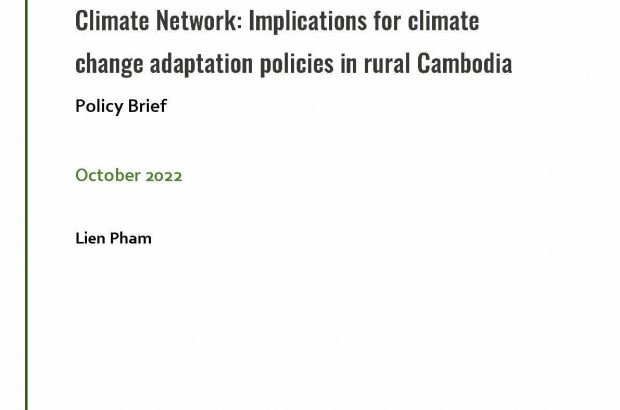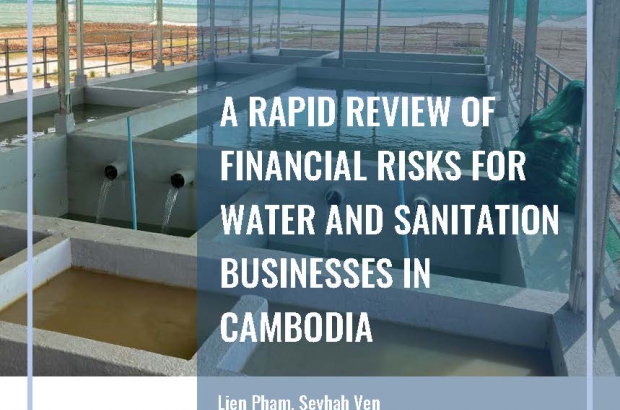
Contributing to “practical hygiene practice” in Cambodia
2759
“I want to see the people in the community and others in Pursat province to change their behavior and start washing their hands with soap and water from now on. Handwashing Day gives people around the world a chance to participate in practicing HANDWASHING with soaps and water to protect themselves from disease infection and improve their health and hygiene.”
This is Ms. Long Bunna’s story, a beneficiary from Women-led Output-based Aid (WOBA) project in Cambodia.
The diseases in the family and village
Living with family in Boeng Kak village, Talou commune, Talou Senchey district, Pursat province, Ms. Long Bunna is still sad when talking about the past. She has 12 children including 7 daughters and 5 sons. Unfortunately, 4 out of the 12 children passed away in the past several years from diseases. At that time, the sanitation and hygiene status were poor in her household and her community. She knew that was the cause of the diseases.
WOBA came to her village
When WOBA started to support her village in 2018, Ms. Long Bonna was invited to attend the WASH session organized at a village level. After the session, she understood well and shared 3 key messages she received with her family members: (1) handwashing with soap, (2) use of hygienic latrine (sanitation/hygiene) practices, (3) safe drinking water. If I knew about this knowledge before, the diseases would not affect to my family, she said.
During Covid-19 pandemic, Ms. Long Bunna participated in a special session conducted by WOBA team on WASH, mainly focusing on proper practices of handwashing with soap, cleanness keeping, safe drinking water to prevent from Covid-19 and other diseases. “My family and I have practiced handwashing with soap before eating and after using the latrine more than ten times per day”, she said.
.jpg)
Photo 1: Covid-19 Hands-on training in Cambodia
“My family also received a handwashing device, four bars of soap, and educational message leaflet related to hand washing before eating and after using a latrine”, Ms. Long Bunna said. She added that her household members including granddaughters and grandsons usually apply handwashing with soap at critical times.
The importance of WOBA’s support and hygienic latrines
After being introduced and mobilized to build a hygienic latrine, Ms. Long Bunna understood the importance of having a hygiene latrine. She discussed with her husband and decided to build a single pit latrine in 2018 under WOBA project. She learned that WOBA provided subsidy, US$30 from EMW and US$5 from Commune Council to support a poor & most vulnerable household. “In order to have a hygienic latrine with good supper structure including a bathroom, the family needed to pay more”, she said. Finally, her household members agreed and decided to sell one cow which costed US$650 in the same year to pay for the latrine cost of US$625. All the members were happy to have a durable hygienic latrine including bathroom and had been using it up to now.

Photo 2: The happiness of Ms. Long Bunna’s daughter when washing hands with soaps
With WOBA support, sanitation and hygiene practice has been gradually improved. “Besides the above-mentioned supports, my household members as well as other villagers in this community have much benefited from the WOBA project including knowledge and skills for sanitation and hygiene practices. My family and I highly appreciate EMW”, Ing Srey Touch, the youngest daughter expressed.
———————————————————
Under WOBA, EMW Cambodia has worked with communities in the eight target provinces including Pursat to deliver three key messages which include handwashing with soap is one of the most effective ways to prevent from COVID-19 pandemic. 33,102 bars of soap and 9,286 handwashing devices were distributed to 9,286 GESI poor/poor households.
Find more information about WOBA Cambodia at: https://emwcambodia.com/women-led-output-based-aid-cambodia/
Related Stories
2536
Grassroots adaptation through the Citizens Climate Network: Implications for climate change adaptation policies in rural Cambodia. Policy Brief
This policy brief provides policy rationale for the CCN pilots. Drawing on the first two months of the CCN pilots, the brief poses the questions for policymakers in Cambodia: 1) How to translate policy plans to adaptation and mitigation actions that are effective and sustainable?; 2) Which policy plans should be prioritized and through which mechanisms and channels? 3) What are the benefits of immediate actions compared with costlier delays?
2068
Household Demand for Safely managed Sanitation: A Case Study of Two Rural Communes in Cambodia.
This study investigated how rural households in two villages in Kampong Trabek district, Prey Veng province, Cambodia, have experienced, perceive and demand different aspects of FSM, particularly ADPs. The results of this study are intended to inform future FSM product and service development, and ultimately improve rural FSM safety and public health.
2513
A Rapid Review of Financial Risks for Water and Sanitation Businesses in Cambodia
This review of prior studies on financial risks in supply market of WASH products and services was conducted to better understand financial risks issues generally in developing countries and specifically in Cambodia. The report synthesises issues identified in the review and document the risks that WASH businesses encounter along the supply chains, and factors associated with these financial risks in the WASH markets particularly in Cambodia. The results are used to develop a questionnaire to survey private sector WAS suppliers in the WOBA project.



